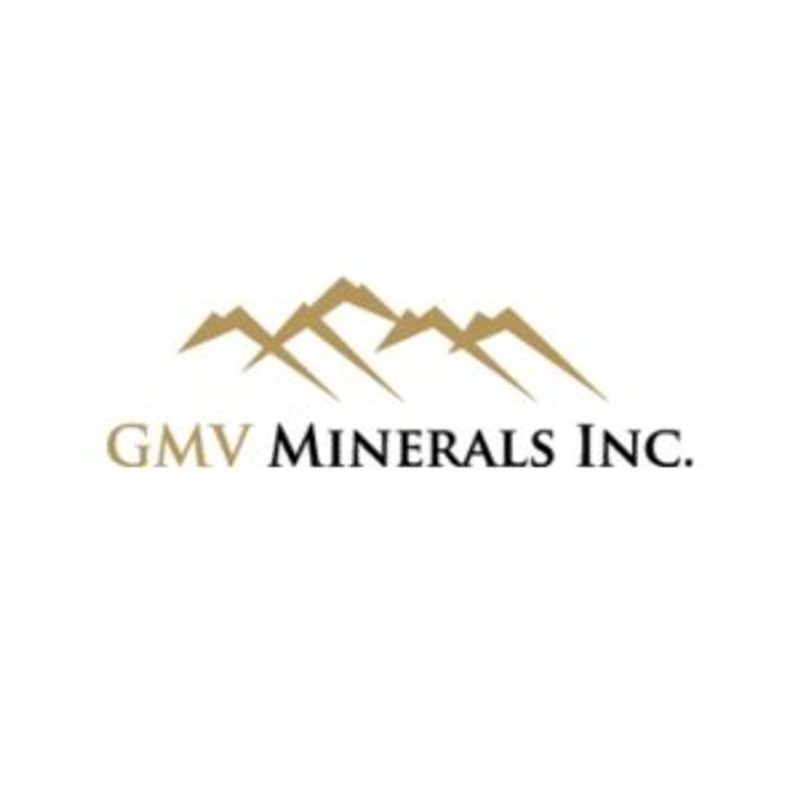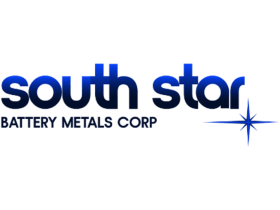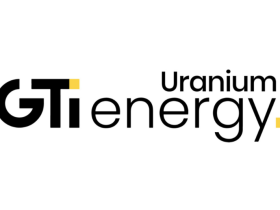Overview
As one of the core materials in rechargeable batteries, lithium is essential for the electrification of the automotive sector. Steadily increasing electric vehicle sales contributed heavily to the growing lithium market. With investments in battery gigafactories reaching nearly $300 billion, demand for lithium will only continue to rise. Aside from electric vehicles, lithium is also an essential material for renewable energy technologies and the Internet of Things.
Current lithium production simply cannot keep up with soaring demand, and unless there is an exponential increase in available supply, we could hit a hard cap as early as 2027, according to S&P Global’s Commodity Insights.
Well-established junior gold development company GMV Minerals (TSXV:GMV, OTCQB:GMVMF) saw the writing on the wall. Having invested considerable time and capital into its promising, Arizona-based Mexican Hat gold project, GMV sought to diversify its mineral assets. Driven as much by investor interest in lithium as by its own recognition of the battery metal’s potential value, GMV shifted its focus.
This pivot culminated in a three-year option agreement which will see the company gain a 100-percent interest in the Daisy Creek lithium project, located in Lander County, Nevada.
Named by Fraser Institute as the 2022 top jurisdiction in the world for mining investment, Nevada hosts the only producing lithium mine in North America currently, and is home to Thacker Pass, the largest known lithium deposit in the US, with mineral reserves of 3.7 million tonnes of lithium carbonate equivalent at 3,160 parts per million lithium.
Daisy Creek was first identified as a rich potential source of lithium in the 1980s. Its then-owner, Phillips Uranium, opted not to develop it further due to their focus on uranium. However, the company did note that high-grade lithium is likely contained in lithium-bearing clay found in altered volcanic tuffs. Geologists staked claims in the area after seeing similarities between the geology of Daisy Creek and Lithium America’s significant Thacker Pass discovery.
Building on the historic drilling data from Phillips and working with several of the geologists who were originally responsible for collecting that data, GMV intends to explore the property to assess its potential for expansion prior to development.
Company Highlights
GMV Minerals is a junior gold development company with a recently added claim block focusing on lithium.Driven by investor interest and market conditions, the company entered into an agreement to obtain 100-percent ownership of the highly prospective Daisy Creek lithium project. GMV also maintains 100-percent ownership of the Mexican Hat gold project, notable for its estimated 10-year mine life, low capex and a pre-tax $153-million NPV using a US$1,600 per oz base case. Mexican Hat hosts an inferred 688,000 ounces of gold, excellent metallurgical results and a low strip ratio. Both Daisy Creek and Mexican Hat are situated in safe, mining-friendly jurisdictions with readily available and experienced service providers. Each asset is also situated in close proximity to existing infrastructure, further reducing initial capex. GMV is also noteworthy for its tightly-held share structure, with 24 percent of shares held by management and advisors.
Key Projects
Daisy Creek Lithium
Located in Lander County, Nevada, Daisy Creek consists of 82 lode claims. Initially targeted for uranium by multiple oil and mining companies in the late 1970s and early 1980s, the project instead proved rich in lithium, displaying values of up to 2 percent in clay-altered volcanic tuffs, which geologists noted was likely hectorite-based.
GMV’s Daisy Creek Lithium Project in Nevada
Because there was very little demand for lithium at the time, Daisy Creek largely sat ignored and forgotten. It was not until several decades later that two of the geologists involved in the project’s original drilling program noted multiple similarities between Daisy Creek and Lithium America’s burgeoning, highly prospective Thacker Pass discovery. GMV plans to conduct a field program to confirm these observations.
Highlights:
Full Ownership: In May 2023, GMV entered into a three-year option agreement with Daisy Creek’s original owner which will see it eventually gain a 100-percent interest in the project.Pre-Existing Infrastructure: Daisy Creek is situated near several operating gold mines and has ready access to power, water and paved highways, considerably lowering the initial capital investment that will be required to develop the project.
Mexican Hat
A low-sulphidation epithermal gold deposit, Mexican Hat contains an estimated gold resource of approximately 700,000 ounces across 4,800 acres. As GMV’s flagship project, the company still aims to further expand this resource through drilling, ultimately moving from an inferred resource estimate to a measured and indicated estimate. The mine development itself will consist of two pits — a smaller southeast pit will be mined first, followed by a larger pit to the north.
As with Daisy Creek, GMV has a 100-percent interest in Mexican Hat.
Mexican Hat Project in Arizona
Highlights:
A Critical Asset: Mexican Hat represents one of the most promising gold development opportunities in the Western United States and GMV’s most advanced anchor asset.Established Infrastructure: Mexican Hat is located in close proximity to considerable transportation and power infrastructure, and a skilled workforce.Well-established Mining Process: GMV plans to extract minerals from Mexican Hat through heap leaching, a mining process known for its low capital investment and operating costs, fast payback, lack of tailings, low energy and water requirements, and simple setup and operation.Surveys and Permitting: GMV has, thus far, carried out groundwater sampling, air quality sampling, wildlife analysis and an archaeological analysis of the project area. The area has also been the target of extensive exploration by its previous owner, Placer Dome USA.Area Geology: Primary mineralization in Mexican Hat consists of gold and oxides in a metasomatic assemblage of chlorite, carbonate, epidote and minor silica arranged along a series of fractures and fault zones within a tilted conformable package of tertiary rock.Mineral Resource Estimate Results: The results of Mexican Hat’s 2020 MRE indicated an inferred resource of 688,000 ounces at 0.58 g/t gold in 36.73 million tonnes with a cut-off of .20 g/t gold and a strip ratio of 2.36.
Management Team
Ian Klassen — President and CEO
Ian Klassen has 30 years of experience in public company management, public relations, government affairs, entrepreneurship, media relationship strategies and project management. Klassen is the president of a North American mineral exploration company and sits on the board of directors of several private and public companies. Previous to his management activities within private and public companies, he held a variety of positions within federal Canadian politics, including as senior political advisor to the Minister of State (Transportation), and as chief of staff, Office of the Speaker of the Canadian House of Commons.
Klassen graduated with an undergraduate honors degree from Western University in 1989. In 1992, he received the Commemorative Medal for the 125th Anniversary of the Confederation of Canada in recognition of his significant contribution to his community and country.
Dr. D.R. Webb — Lead Consultant
Dr. D.R. Webb graduated with a geological engineering degree from the University of Toronto, where he obtained awards for the highest marks in both third-year and fourth-year field camps. He obtained his M.Sc. and Ph.D. in geological sciences at Queen’s University and Western University, respectively, where his focus was on the structural and geochemical controls on gold mineralization in the Yellowknife Greenstone Belt.
Webb is credited for discovering both the largest granitic hosted gold deposit in the Northwest Territories and the largest gold deposit in the Yellowknife Greenstone Belt found in the past 30 years. He served as president and director of Tyhee Gold Corp, where he and his team developed a high-grade gold deposit into production, becoming Mongolia’s first hard-rock gold mine. He later advanced his discoveries in Yellowknife into a multimillion-ounce resource, completed economic and engineering analysis and initiated both feasibility studies and permitting.
Webb also developed the Mon Gold Mine into the most recently permitted gold mine in the Yellowknife Gold Belt, operating for seven years then shutting down in 1997, due to declining gold prices. He recently completed permitting to commence reopening of this mine. Webb is a consultant to the industry, providing services throughout the world and sits on the board of Lake Victoria Mining Company Inc. and Metallis Resources Inc., several private corporations, and is on the advisory council for the Centre of Training Excellence in Mining.
Webb co-authored the qualifying report on Fortune Minerals’ Nico Deposit, recommending acquisition of what is now the largest bismuth resource in the world.
Michele Pillon — Chief Financial Officer
Michelle Pillon is an accountant with several years experience in the junior mining exploration sector. Since 1988, Pillon has been providing accounting and regulatory assistance to public and private companies.
Ronald L. Handford — Vice-president, Communications
Ronald Handford is a mining and technology entrepreneur and advisor with 18 years of CEO and senior executive experience. He has raised or participated in raising almost $80 million in private and public equity, and has extensive investor, banking, industry and government contacts in North America, Europe and Asia.





